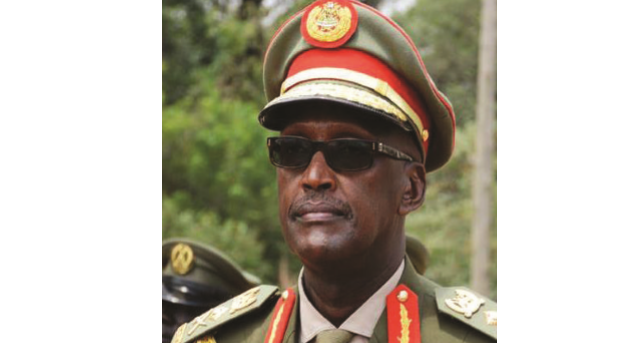
Kayihura’s rise
Indeed, while advancements in technology make it an exciting time to be an intelligence operative, the heads of these organisations, are unlucky to head them at the time Gen. Kale Kayihura is the Inspector General of Police.
As they continue to struggle, the budget of Uganda police continues to grow. It hit Shs527 billion this financial year.
This is not a coincidence. The bosses of the intelligence bodies blame their current fate on Police Chief Gen. Kale Kayihura, who incidentally, Balya was widely rumoured to be warming up to replace before the axe swung.
Kayihura has, meanwhile, been restructuring police. One of his restructurings saw him grow the Criminal Investigations Department (CID) into the Criminal Intelligence and Investigations Department (CIID).
In 2013, funding for CID investigations was just Shs4.85 billion. As of last year, CIID got over Shs20 billion, and this year, it was demanding Shs 50 billion, which is almost the size of the budget of ISO.
“Due to inadequate funding, CIID is incapacitated and cannot investigate and conclude all cases registered,” police noted in its pitch for more cash.
Indeed, the talk in security circles is that the entire ISO budget was swallowed by police. Critics say that while funding police is not a bad thing, weaning bodies like ISO off necessary funding is a dangerous oversight.
Poor funding is partly to blame for the loopholes inside Uganda’s intelligence system, which critics have long said that in the wake of terror attacks in the region, is a big cause for worry.
Some critics say failure to fund the intelligence bodies and professionalise them is deliberate because the executive only sees them as necessary to serve its interests at the expense of national security.
Yet critics warn that as Uganda’s intelligence remains riddled with weaknesses, unreformed and unequipped, what attacks like the September 2001 on the U.S, the July 2010 and the Westgate attack have shown that critical reforms in intelligence are critical if a country is to fight terrorism.
Seemingly cognisant of the problem, in 2012, President Yoweri Museveni directed an overhaul of the country’s top intelligence bodies.
The move came following an expose on how an officer, Stephen Kisembo, in the External Security Organisation (ESO) was involved in selling Intel to Sudan, which is perplexing, given that Sudan is one of Uganda’s biggest threats.
Having been an intelligence officer, Kayihura used his networks to keep supplying critical intelligence to Museveni that the other agencies were in the dark about.
For instance, it was Kayihura’s intelligence about how renegade General Sejusa was involved in gathering intelligence about the army; sources say that was the basis for Museveni to order for the overhauling of the intelligence agencies.
But many also blame President for the “mess” in the intelligence bodies.
Since Museveni took over government in 1986, critics say, he has maintained his intelligence system–the kind that he had relied on to survive as a guerrilla, instead of reforming it and growing it into an independent and professional system.
Ultimately, many feel that the objective for Museveni has been retaining power. That is why he has built a “fortress of loyalty instead of a professional intelligence system”.
They note that the current situation in ISO is evidence that for President Museveni, if some other organisation can do what ISO is meant to do as the police is doing, then ISO ceases to be relevant.
This is why some fear that, however good Col. Kaka and his colleagues at other sister agencies might be, they too might fail to return the agencies to their former glory.
****
editor@independent.co.ug
 The Independent Uganda: You get the Truth we Pay the Price
The Independent Uganda: You get the Truth we Pay the Price





